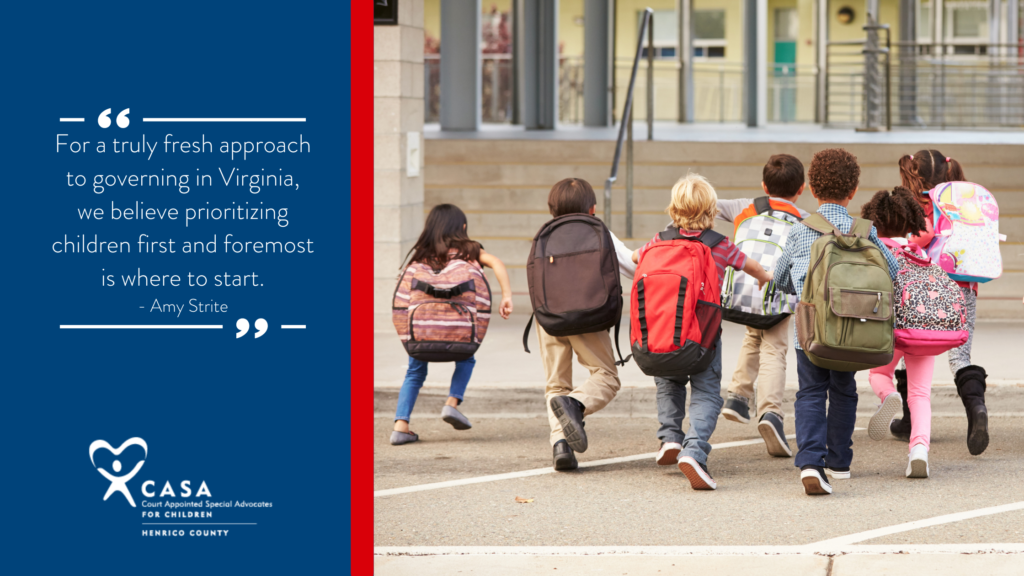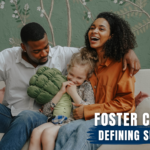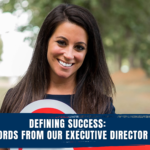
We have all heard the phrase “children are our future.” It’s true… but children must be our present in order to become our future. We must prioritize their well-being now – their health, safety, and education – in order to ensure they have a future. Not just any future, but a future beyond surviving where they are thriving. Our children deserve the opportunity to grow, dream and become active contributors to a better Henrico, a better Virginia.
The recent Op-Ed below, written by Amy Strite, CEO of Voices for Virginia’s Children , is a call to action for our new Governor and the leadership in the state of Virginia. As you read it, allow her words to speak to you on an individual level. This call to action applies not just to our leadership, but also to every one of us, as community members. We must take action to prioritize the needs of our most vulnerable citizens: children.
There are 2.6 million children and young adults in Virginia. To keep our promise to children and create a society that values them as our most precious and vulnerable members, we must take a hard look at if we are living up to our commitments to provide equitable opportunities for them to thrive.
The truth is that too many children in Virginia live in families who struggle to meet their basic needs. From 2008 to 2019 the number of children living in families that make less than $51,852 (or double the poverty line threshold) remained at 31%. Poverty thresholds are set each year by the U.S. Census and are used to determine the guidelines for eligibility for policy interventions and safety net services.
Gov.-elect Glenn Youngkin will face entrenched childhood poverty across the commonwealth when he opens the doors to the executive offices. And more than that, he will face economic uncertainties for families looking to return to work, find child care and afford basic expenses.
Staying gainfully employed and being able to access food, housing, child care and health care is essential for families to survive, let alone thrive. Longstanding issues stemming from systemic racism and decades of disinvestment compounded by COVID-19 have weakened the safety nets we do have in place. Without family economic security, children are vulnerable to poor health, abuse, neglect, low birth weight and low school performance.
Families that accessed additional financial resources like food benefits during the pandemic are beginning to feel more financially secure after a difficult 18 months. Historically, there are fewer reports of abuse and neglect in households where families are able to access additional financial resources and benefits; something that’s critical in keeping children with their parents and family.
Family economic security also affects the mental health and emotional wellbeing of children and youth, often into adulthood. While the pandemic has been a catalyst for overdue conversations about mental health and prompted creative solutions — such as telemedicine and expanding mental health support programming in schools — the shortage of mental health providers and reimbursement for services continue to plague the system.
Unfortunately, these are all ongoing issues for multiple administrations and leaders across both parties. And Black, Latino, Asian, Native American, immigrant, rural and urban families all experience these challenges differently.
There will be new opportunities for Gov.-elect Youngkin to lead on children’s policy issues and to bring his priority initiatives to Richmond. His leadership and ideas will face similar challenges of previous governors and new challenges presented by the pandemic. We are calling on the new administration to build on campaign promises and implement the following initiatives that will improve the lives of children and families:
1. Promote efficient government by facilitating collaboration across state agencies. Kids and families do not live in silos the way state government and government programs are currently organized. Often, the division across agencies adds complexity for families and service providers. Previous governors appointed a Children’s Cabinet or cross-agency liaisons; a necessary approach to address the prevention of foster care or to improve children’s mental health services. We believe Gov.-elect Youngkin can enhance this model by adding parent and youth advisory committees to the Cabinet to include their feedback when identifying priorities and solutions.
2. Transform children’s mental health initiatives by providing leadership and creative solutions to long-standing problems. To fully recover from the pandemic, state leaders must step forward with robust plans to support children’s mental health that focuses on prevention, access to treatment and an increased workforce that works to keep youth from showing up in crisis in emergency rooms.
3. Pave a path for family economic stability beyond survival. Financial resources provide security families need to feed, house and care for children. If these resources expire, more families will be back on shaky ground if they were not able to secure high-paying jobs and child care resources. Virginia’s next governor should focus on outreach and collaboration to help families achieve stability such as providing benefit navigators and offering child care assistance when looking for work.
In a partisan climate, the initiatives we’ve presented to support children and families do not need to be partisan. Instead of being the best Democrat or Republican, kids simply need the best leaders. With the help and input of families, we hope Gov.-elect Youngkin can help put more children on a solid path to prosperity.
For a truly fresh approach to governing in Virginia, we believe prioritizing children first and foremost is where to start. – Amy Strite
Are you ready to act on your desire to help children? Learn more about volunteering as a Court Appointed Special Advocate at www.henricocasa.org/volunteers/.








